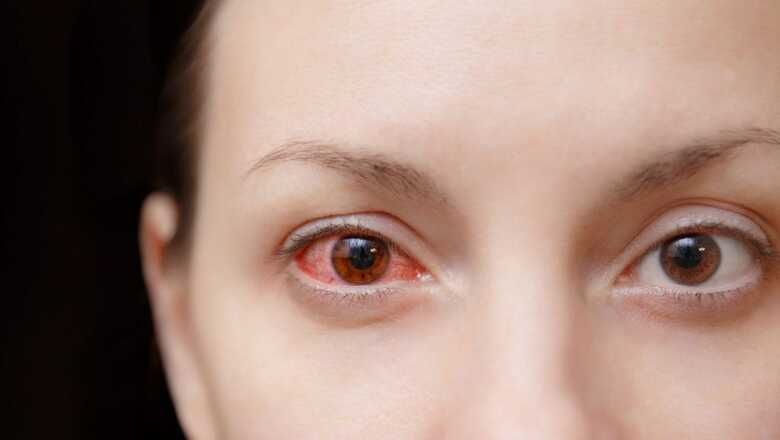
views
The current monsoon season brought Delhi NCR to a complete halt as the Yamuna river water level surged, causing waterlogging in numerous significant parts of the city. The rising waters crossed the danger mark, leading to a sudden outbreak of conjunctivitis in Delhi. The situation worsened notably in regions situated along the banks of the Yamuna river.
What do the experts have to say?
Dr Ashwin Santosh Shetty, Consultant, Ophthalmology, Aster CMI Hospital,” Conjunctivitis, also known as “pink eye” is an infection that leads to inflammation of the conjunctiva, the clear layer that covers the white part of the eye and the inner layer of the eyelids. During monsoons, due to lower temperatures and high humidity, people get exposed to bacteria, viruses, and allergens that cause allergic reactions and eye infections such as conjunctivitis.”
Why is it called a ‘pink eye’?
Dr Mary Abraham, MBBS DO, Consultant Ophthalmologist, Apollo Clinic, T Nagar, adds, “Pink eye, also known as conjunctivitis, is an inflammation of the conjunctiva, the thin, clear tissue that lines the inside of the eyelid and covers the white part of the eye. It is called pink eye because it often causes the whites of the eyes to become pink or red.”
You should consult a doctor if the symptoms are not subsiding after a day and if eye pain is affecting your vision. Your healthcare provider may prescribe antibiotics or other medication. It is advisable to follow your doctor’s instructions for proper diagnosis and treatment and do complete the medication course.
Factors
Dr Abraham shares pink eye can be caused by various factors like:
- Viral infection: Viral conjunctivitis is highly contagious and often accompanies respiratory infections like the common cold. It can spread easily through direct contact with contaminated surfaces or respiratory droplets.
- Bacterial infection: Bacterial conjunctivitis is caused by bacteria and can also be highly contagious. It can result from exposure to bacteria from sources like contaminated hands, makeup, or contact lenses.
- Allergic reaction: Allergic conjunctivitis occurs when the conjunctiva reacts to allergens like pollen, dust mites, pet dander, or certain medications. It is not contagious.“Redness, swelling, itchiness, burning sensation, high sensitivity to light, a sticky discharge, and more than usual teary eyes are some of the common symptoms of conjunctivitis. Conjunctivitis can be painful and can disturb daily life,” adds Dr Shetty.
Treatment
Dr Abraham suggests treatment for pink eye that would depend on the underlying cause:
- Viral conjunctivitis typically resolves on its own within a week or two, and treatment focuses on symptom relief with over-the-counter artificial tears and warm compresses.
- Bacterial conjunctivitis may require antibiotic eye drops or ointment prescribed by a healthcare professional.
- Allergic conjunctivitis can be managed by avoiding allergens and using antihistamine eye drops.
Preventive measures
Dr Shetty suggests preventive measures to prevent it, especially during monsoons.
- Maintain hand hygiene, and wash your hands frequently, contaminated hands are how conjunctivitis spreads.
- Avoid sharing personal items like eye makeup and towels
- Check the expiry date of eye cosmetics
- Change pillow covers often
- Wash your towels often and wear clean clothes
- Since Conjunctivitis is contagious, avoid close contact with people who have conjunctivitis


















Comments
0 comment